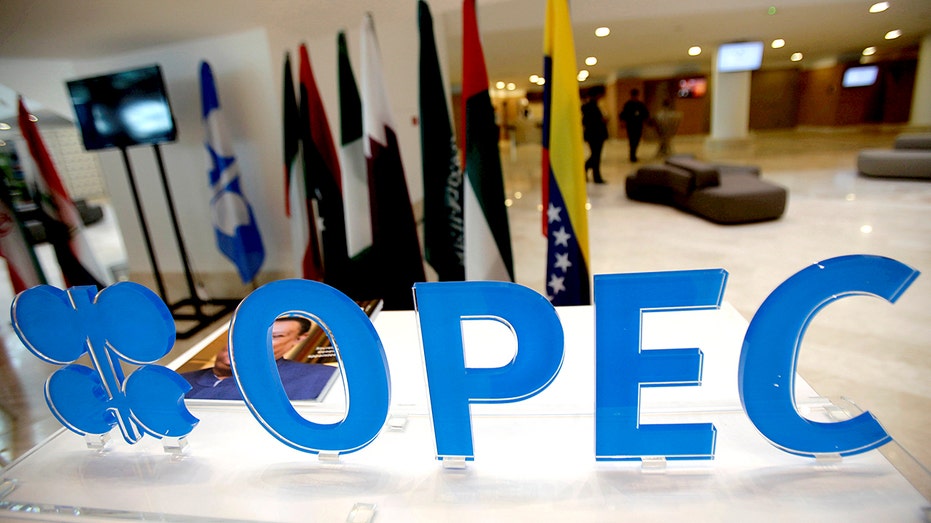Oil inventories lowest since ’85 bad omen for winter
Oil has dropped 10.66% this month but that could soon reverse
Energy expert forecasts oil prices to jump higher and hurt consumers
Canary CEO Dan Eberhart argues oil is experiencing a 'false calm before the storm' and could quickly jump back to $120 a barrel on 'Cavuto: Coast to Coast.
The Biden administration has been celebrating the president’s decision to release a record amount of oil from the U.S. Strategic Petroleum Reserve (SPR) saying it is the main reason why gasoline prices have fallen in an effort to battle sky-high inflation.
Yet will that move have a lasting, positive effect on gas prices or could this move to drain our oil reserves create a much larger risk to the economy as we head into winter?
The Strategic Petroleum Reserve announced this week that the oil supply in the SPR fell to the lowest level since March 1985. That is a major concern because, despite the record releases from inventories, we are not seeing supplies of oil products like gasoline, diesel, and home heating oil build ahead of winter.
United States Oil Fund
According to the Energy Information Administration, in every major category, inventories of just about everything petroleum-related, are below where we’d like them to be.
| Ticker | Security | Last | Change | Change % |
|---|---|---|---|---|
| USO | UNITED STATES OIL FUND - USD ACC | 76.98 | +0.28 | +0.37% |
| UGA | UNITED STATES GASOLINE FUND - USD ACC | 69.43 | +0.94 | +1.37% |
| UNG | UNITED STATES NATURAL GAS FUND - USD ACC | 13.27 | -0.25 | -1.85% |
Now you might think that when Biden announced a record-breaking 180-million-barrel release from our reserve in March, we might expect our usable oil products to see some increase in supply. Sadly that has not been the case. Data released this week from the EIA showed that U.S. crude oil inventories are frighteningly below the 5-year average for this time of year potentially making a cold winter season a problem.
In the event of a major disruption of supply, refiners will look to the SPR as a safety net to keep factories running and keep people warm in the winter.
Part of the problem is the fact that most of those SPR barrels were exported. U.S. crude exports hit a record 5 million barrels a day last week. Not only is it a concern about the total amount of oil that is being exported, but it is also the type of oil. In general, in the SPR, there are two major category types of oil. One is a sweet variety and the other sour. Because U.S. refiners prefer sour, it is sorry to see that most of that type of oil has been exported. Not only are supplies of oil at the lowest level since 1985, the ratio of sour to sweet is at a historic low. For the first time, there is less sour than sweet.
The other problem with the sweet-to-sour ratio is that sour crude yields more distillate than the type of supply we are most in need of and sees its strongest demand in winter. This demand for distillates globally could go through the roof and leave the U.S. undersupplied because of the war in Ukraine. Europe is trying to cut off its reliance on Russia for natural gas which means that they may switch from natural gas to burning distillates or oil to keep the lights on.

(REUTERS/Ramzi Boudina/File Photo)
This was a point brought up by the new OPEC Secretary General Haitham Al Ghais. Not only is he warning of a potential supply squeeze for oil in the coming months, but he is also suggesting that fuel switching in Europe could cause major diesel price spikes this winter.
He was quoted as saying: "We are running on thin ice, if I may use that term because spare capacity is becoming scarce. The likelihood of a [supply and price] squeeze is there." Mr. Al Ghais was also asked why the cartel only added 100,000 barrels of day to the oil market after Biden had visited the Saudi Crown Prince. He said that OPEC had to ration its "severely limited" reserves of output with "great caution." He said it would be unwise at this point to release all OPEC oil on the market and leave none in reserve saying if they did that it would leave the world with little or no spare capacity in the event of an emergency.
This brings us back to Biden's decision to release oil from the reserve. It is clear that Biden, unlike OPEC, was willing to gamble that he could drain our supply of SPR oil to lower gasoline prices, win a few votes and pray that we don't get a cold winter that could leave Americans out in the cold. What is worse, we might not have to wait until winter to feel the potential negative impact of Biden's strategically poor decision. So far, the Atlantic hurricane season has been relatively mild, but we are getting into the heart of the season that ends on November 30th.
READ MORE ON FOX BUSINESS BY CLICKING HERE
Phil Flynn is senior energy analyst at The PRICE Futures Group and a Fox Business Network contributor. He is one of the world's leading market analysts, providing individual investors, professional traders, and institutions with up-to-the-minute investment and risk management insight into global petroleum, gasoline, and energy markets. His precise and timely forecasts have come to be in great demand by industry and media worldwide and his impressive career goes back almost three decades, gaining attention with his market calls and energetic personality as writer of The Energy Report. You can contact Phil by phone at (888) 264-5665 or by email at pflynn@pricegroup.com.




















